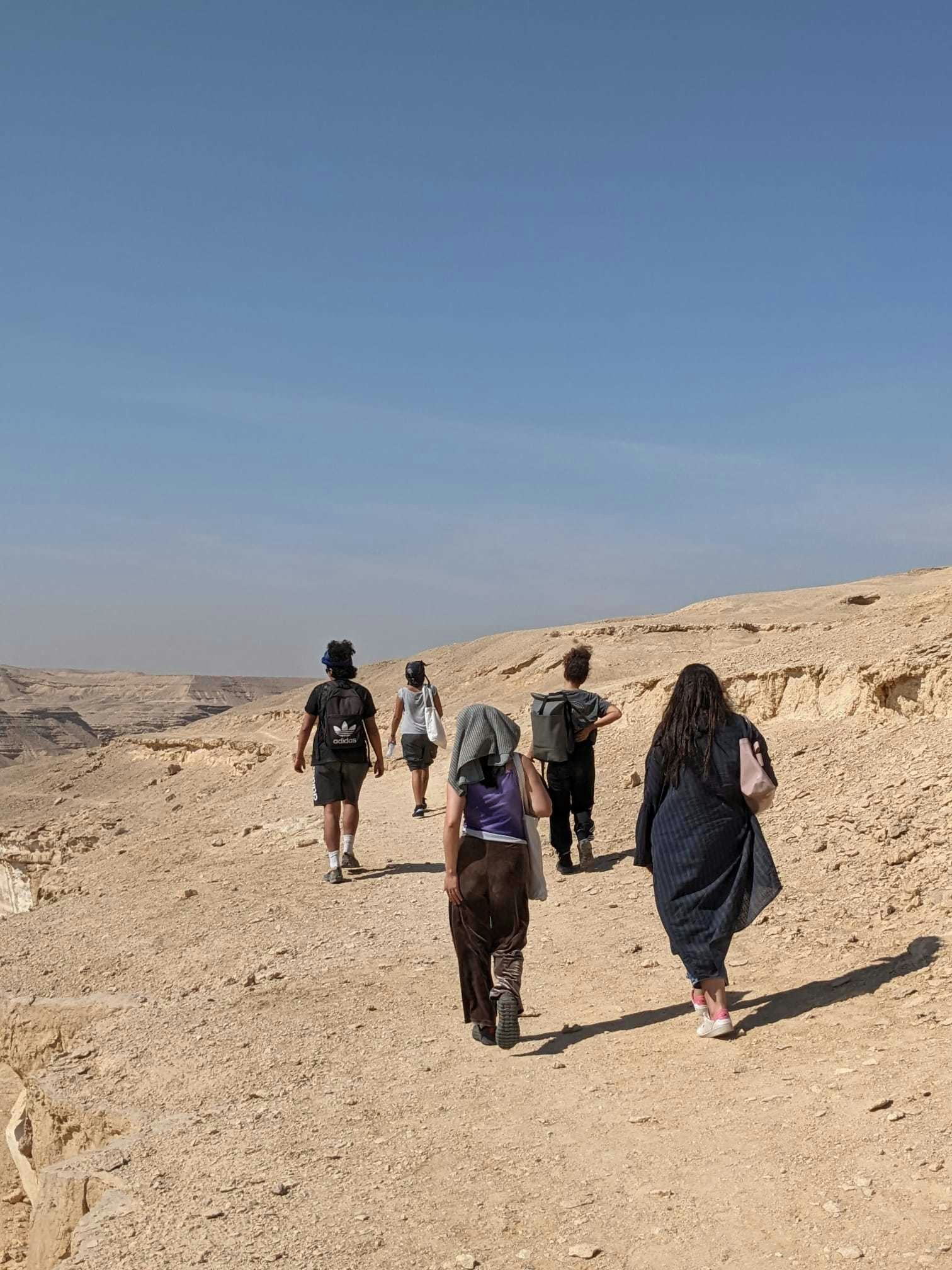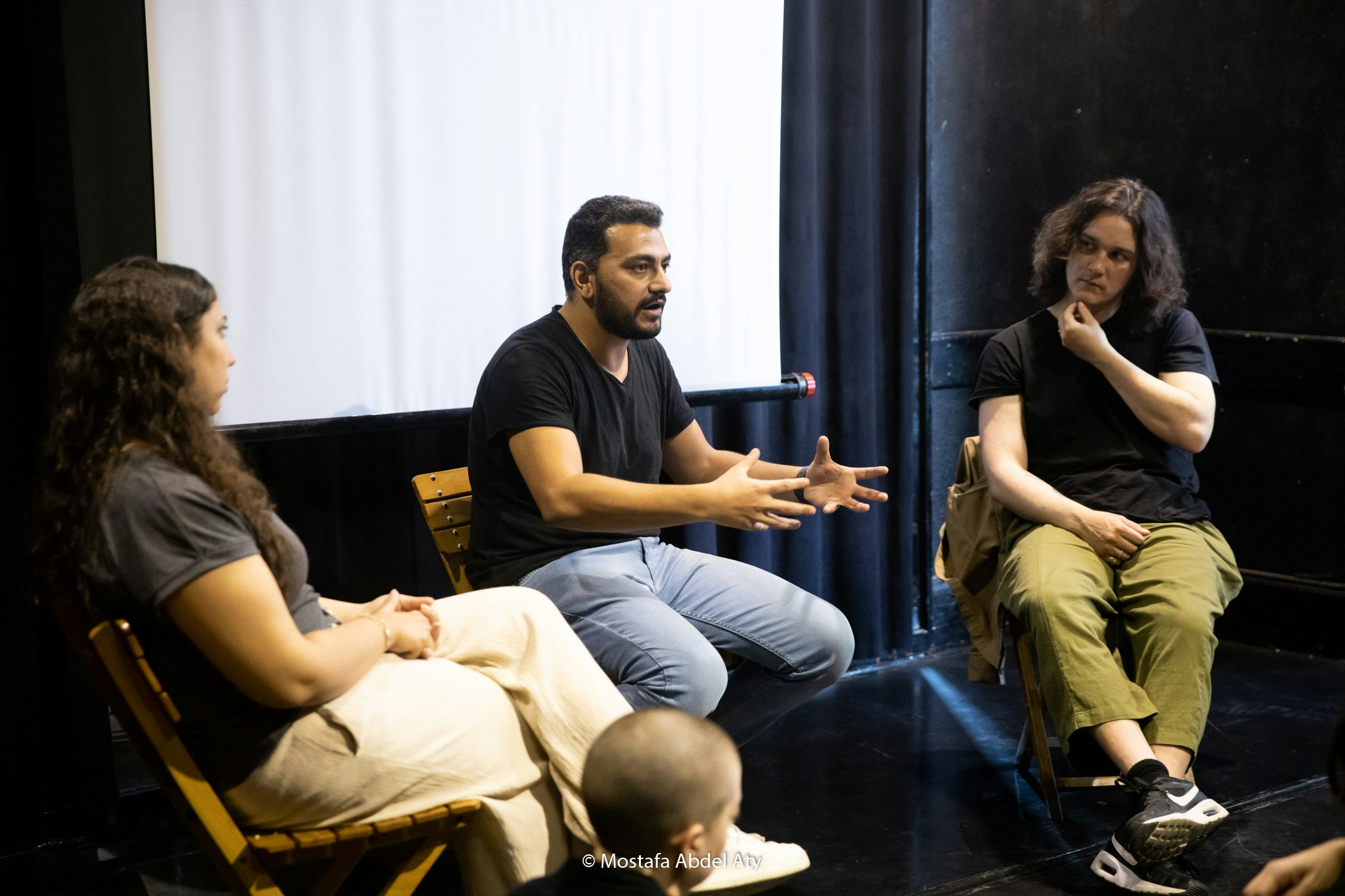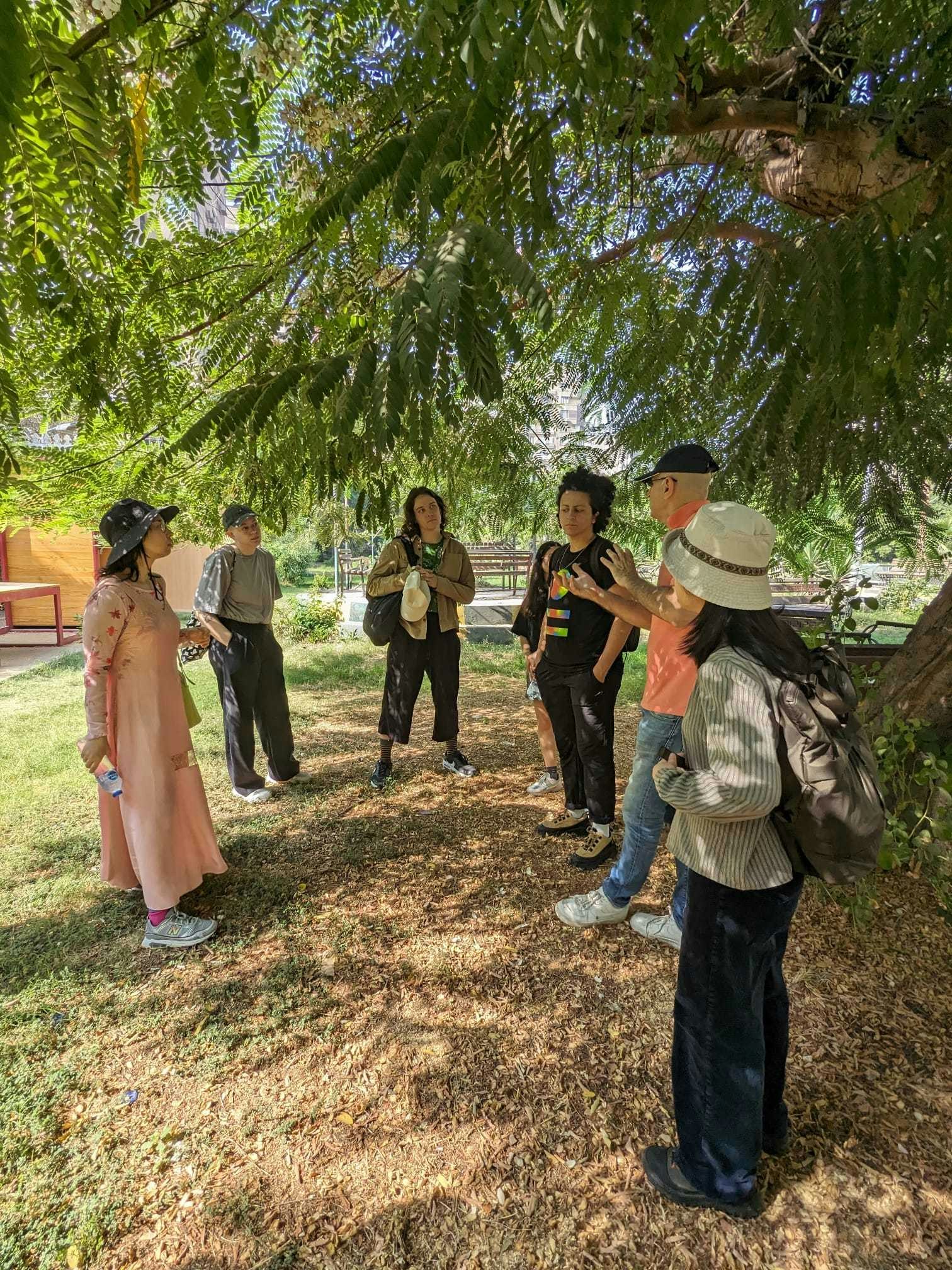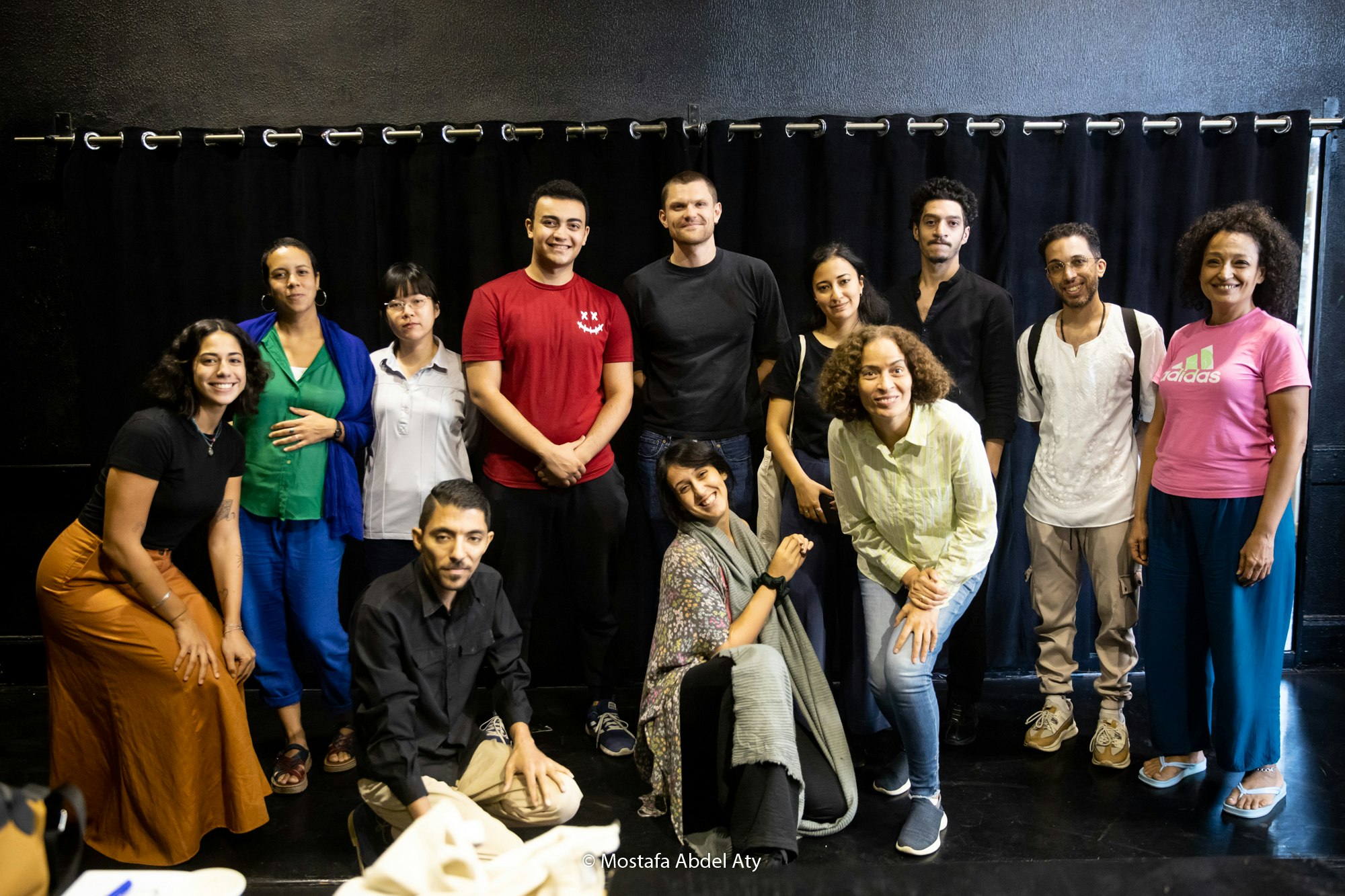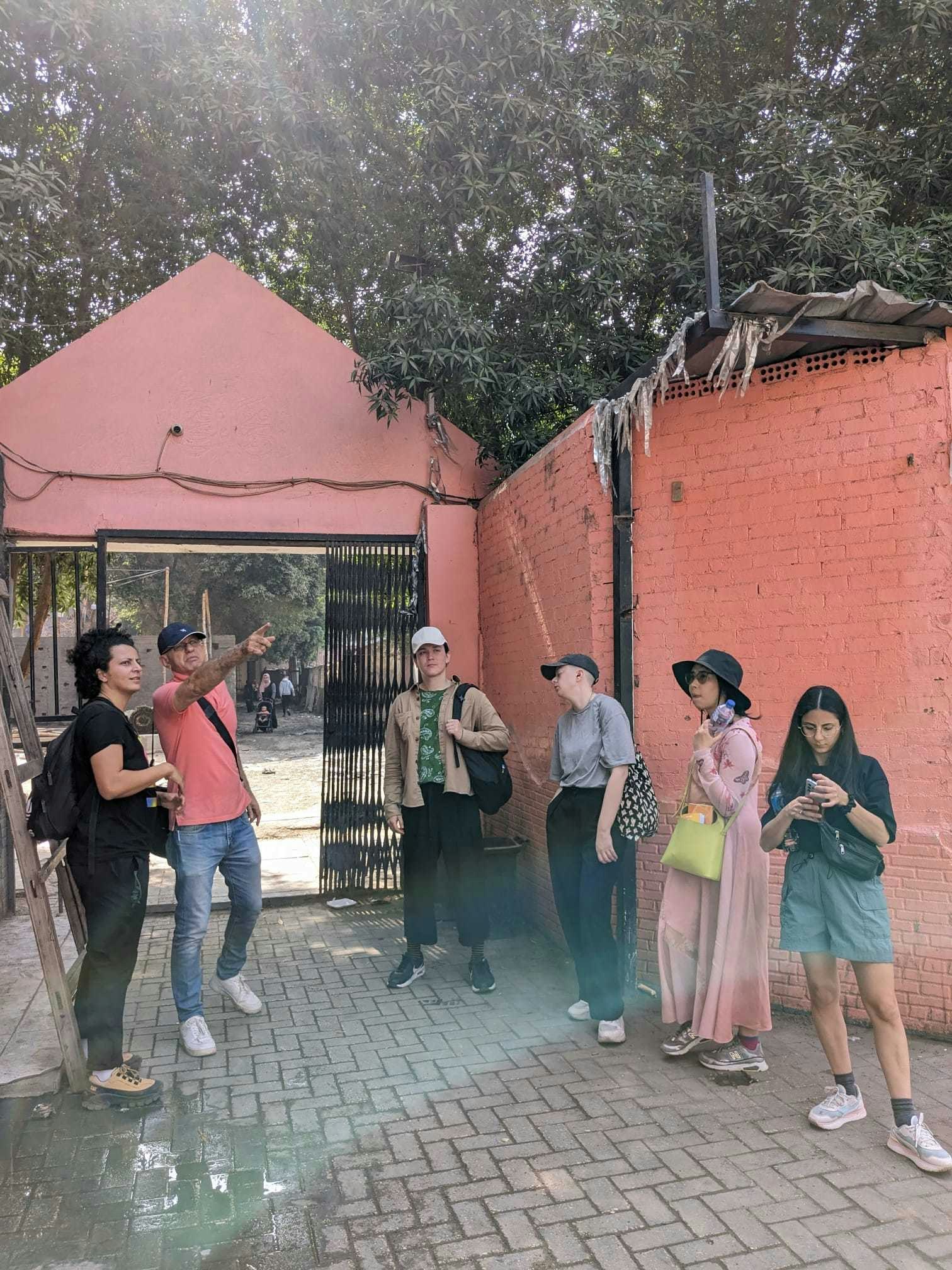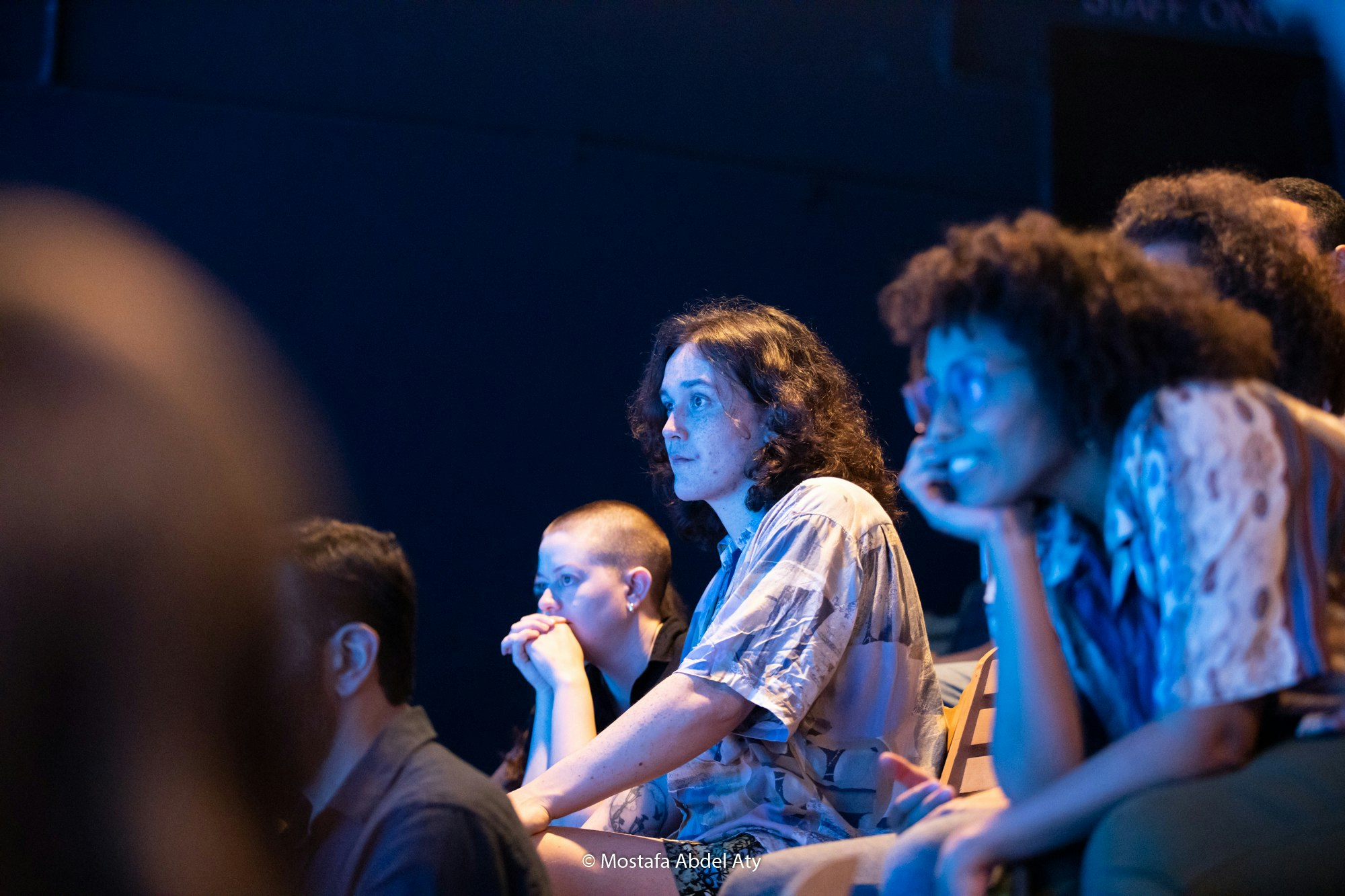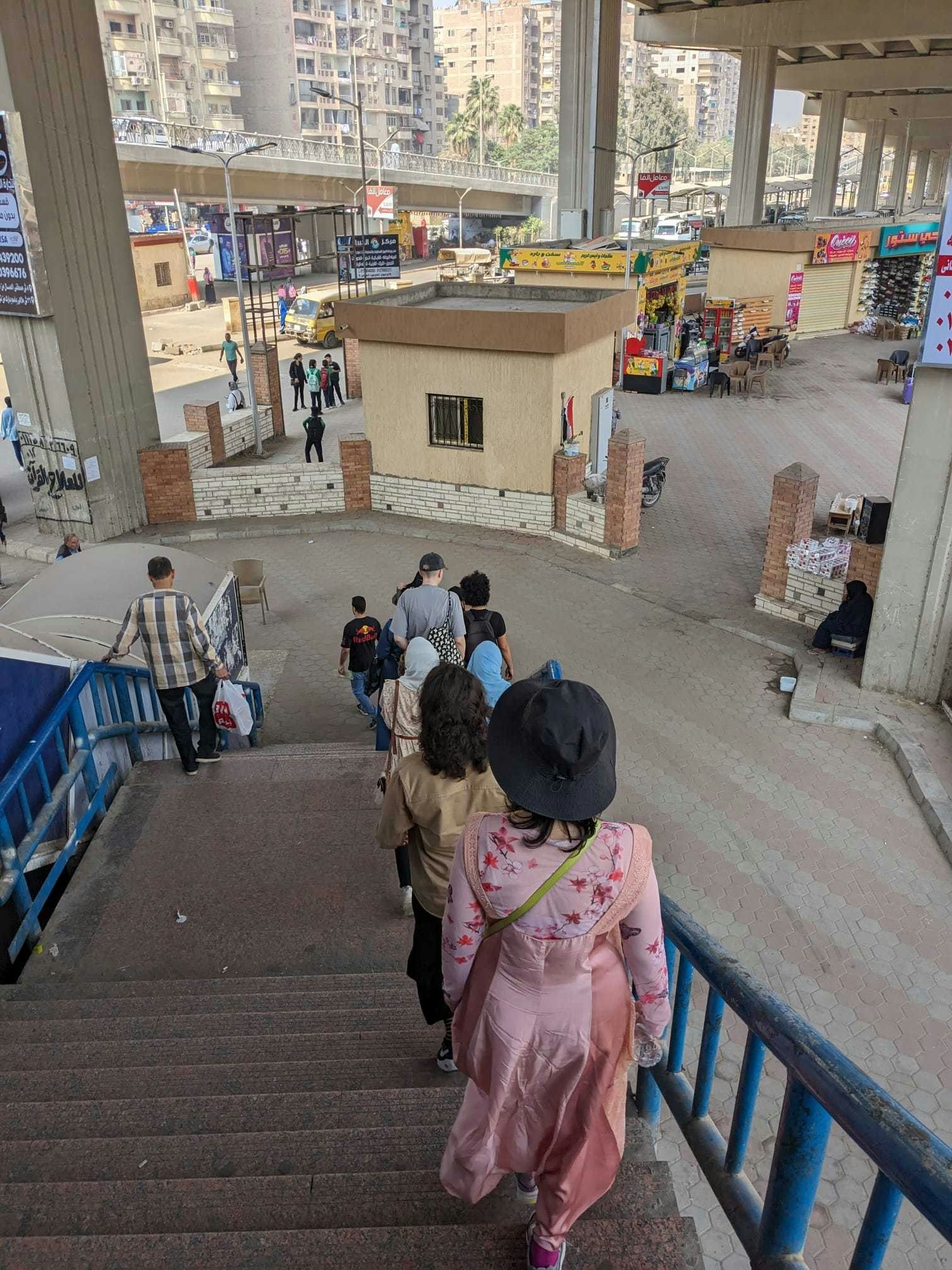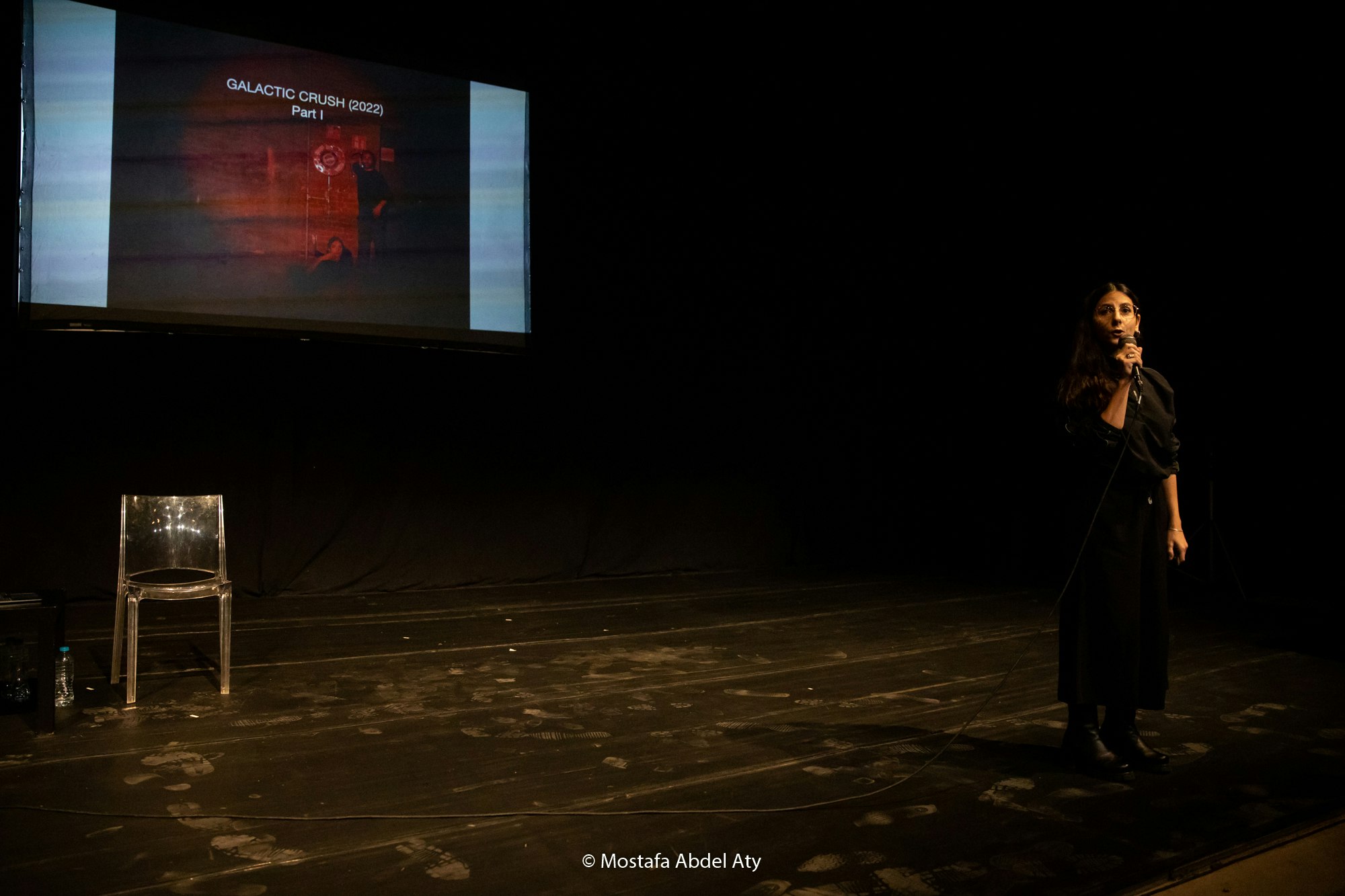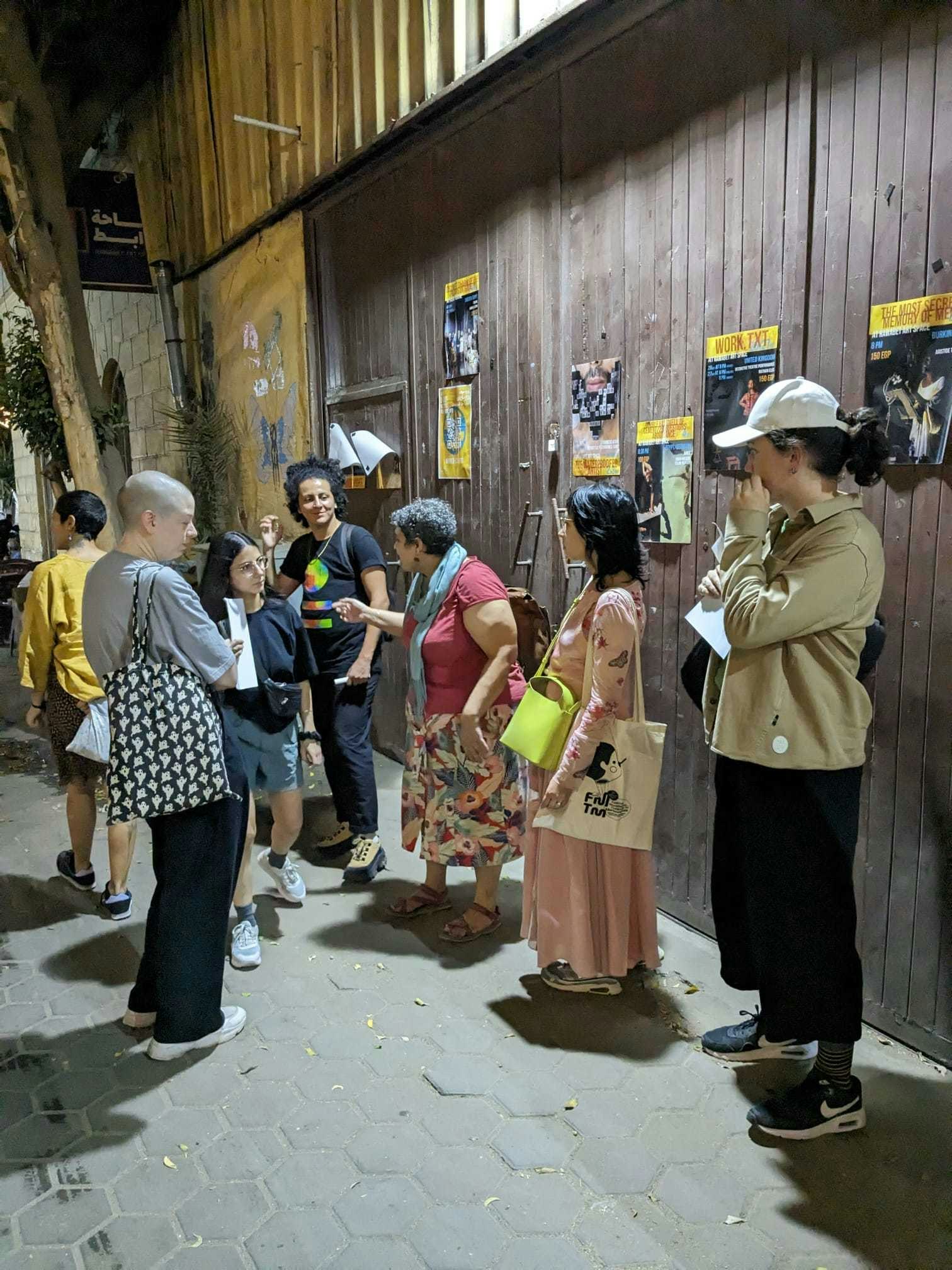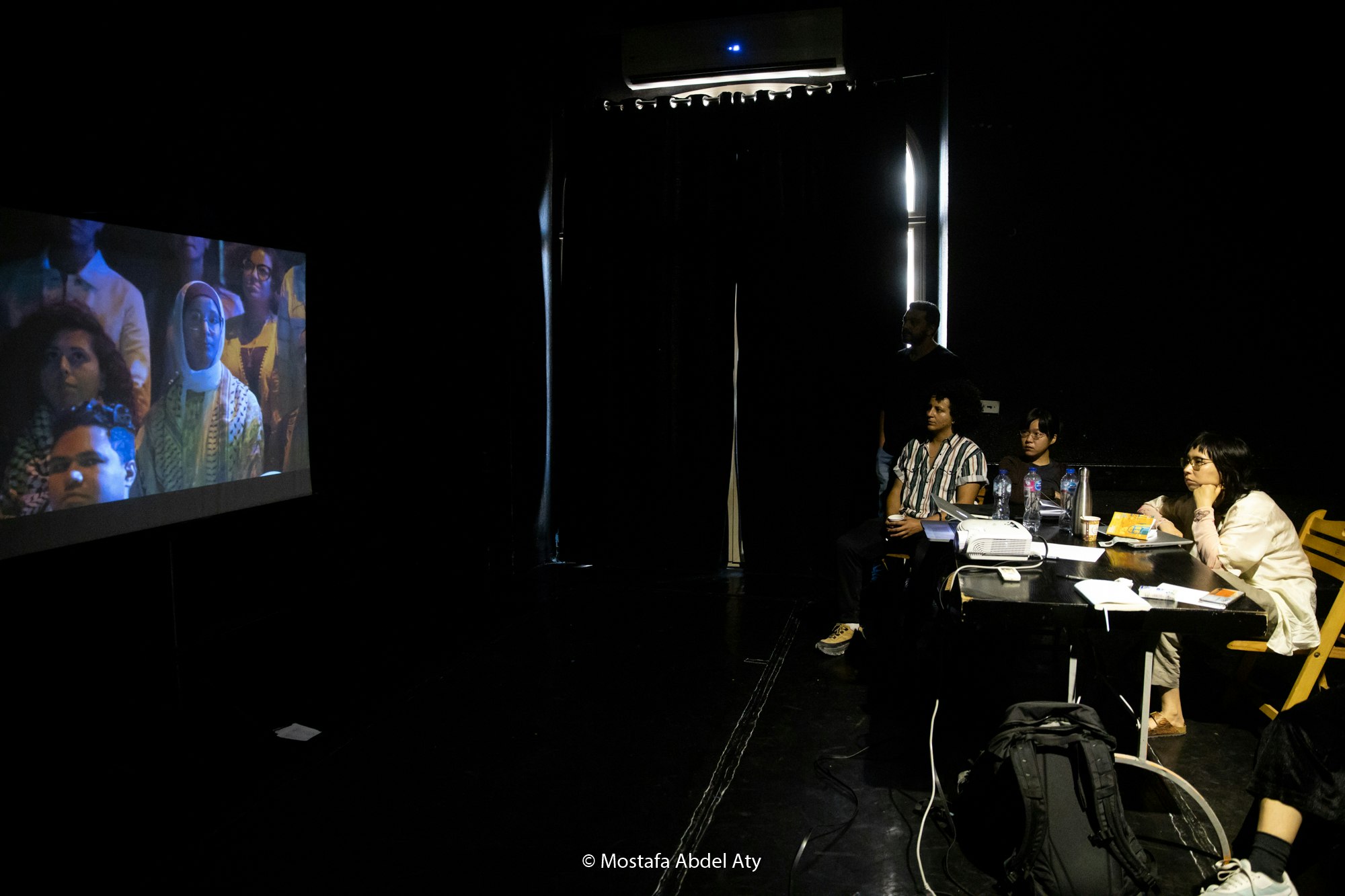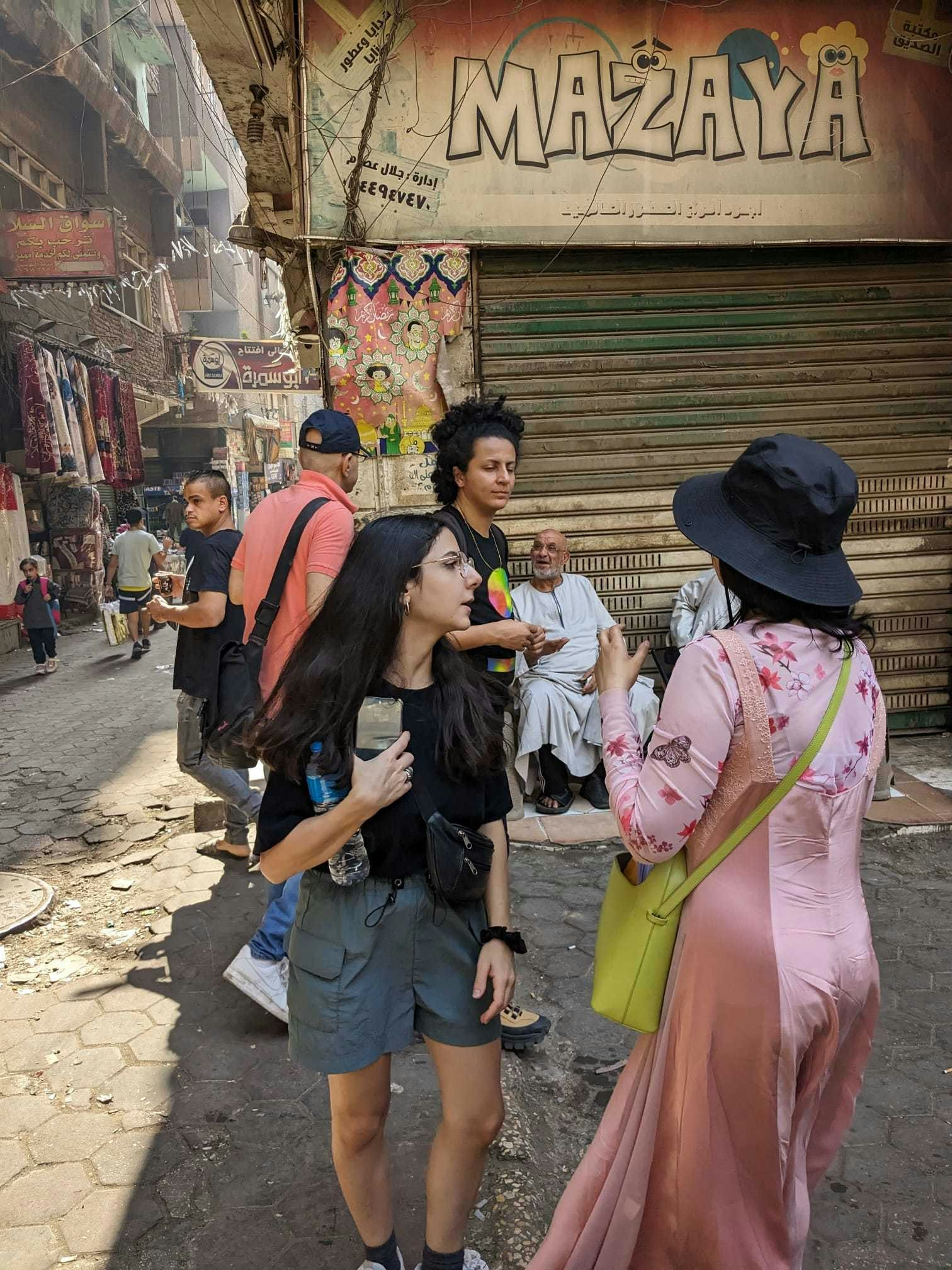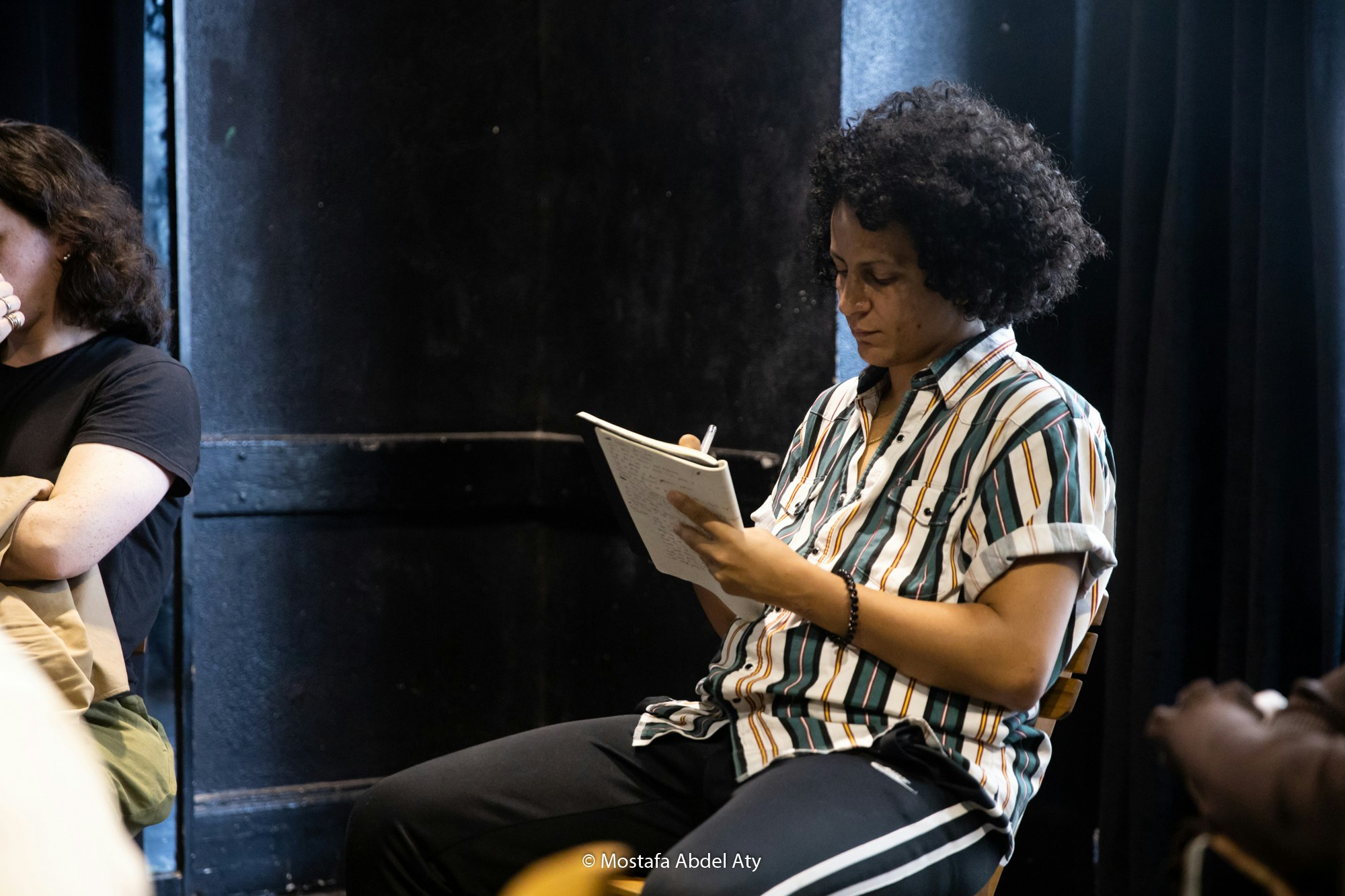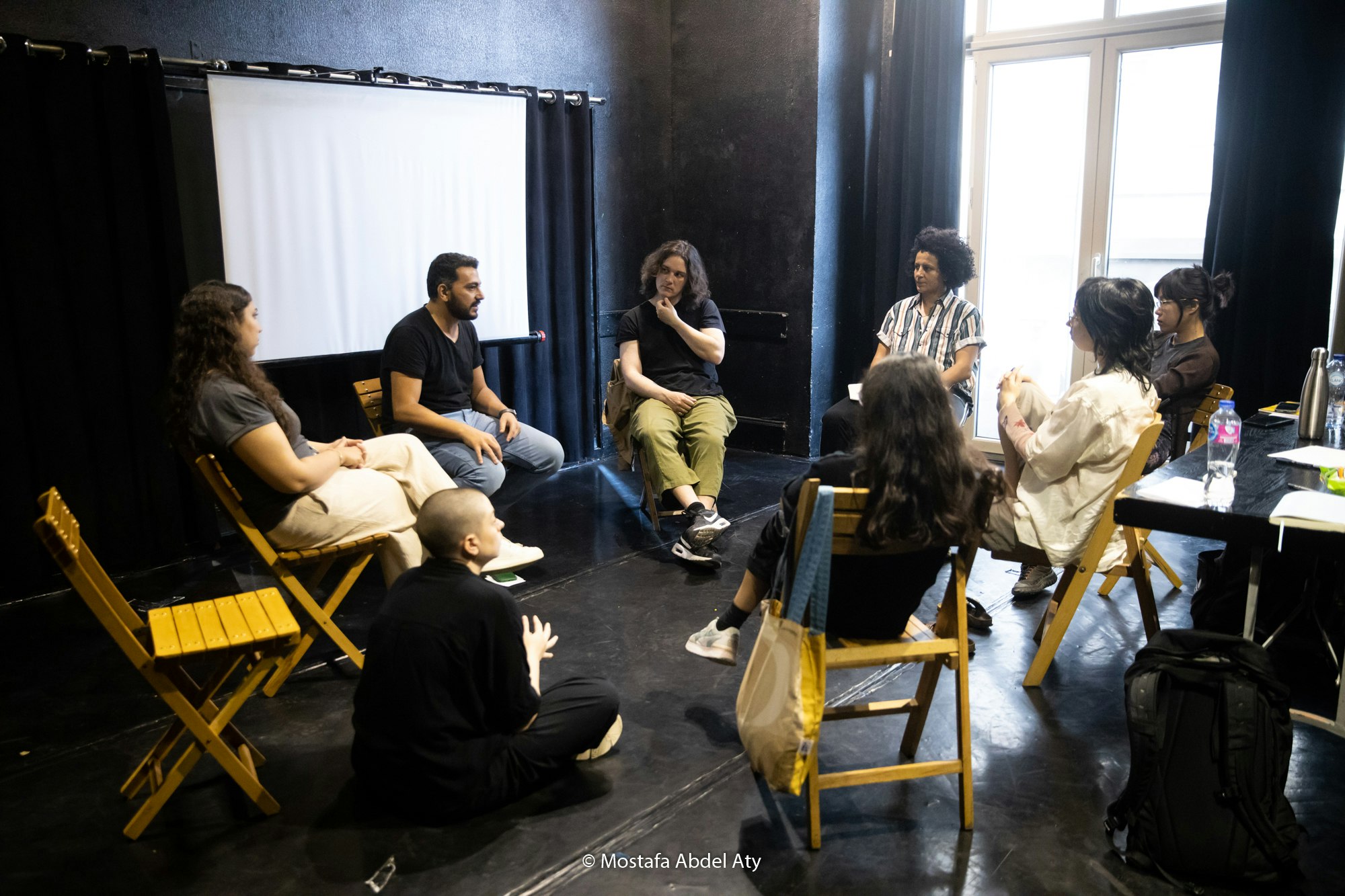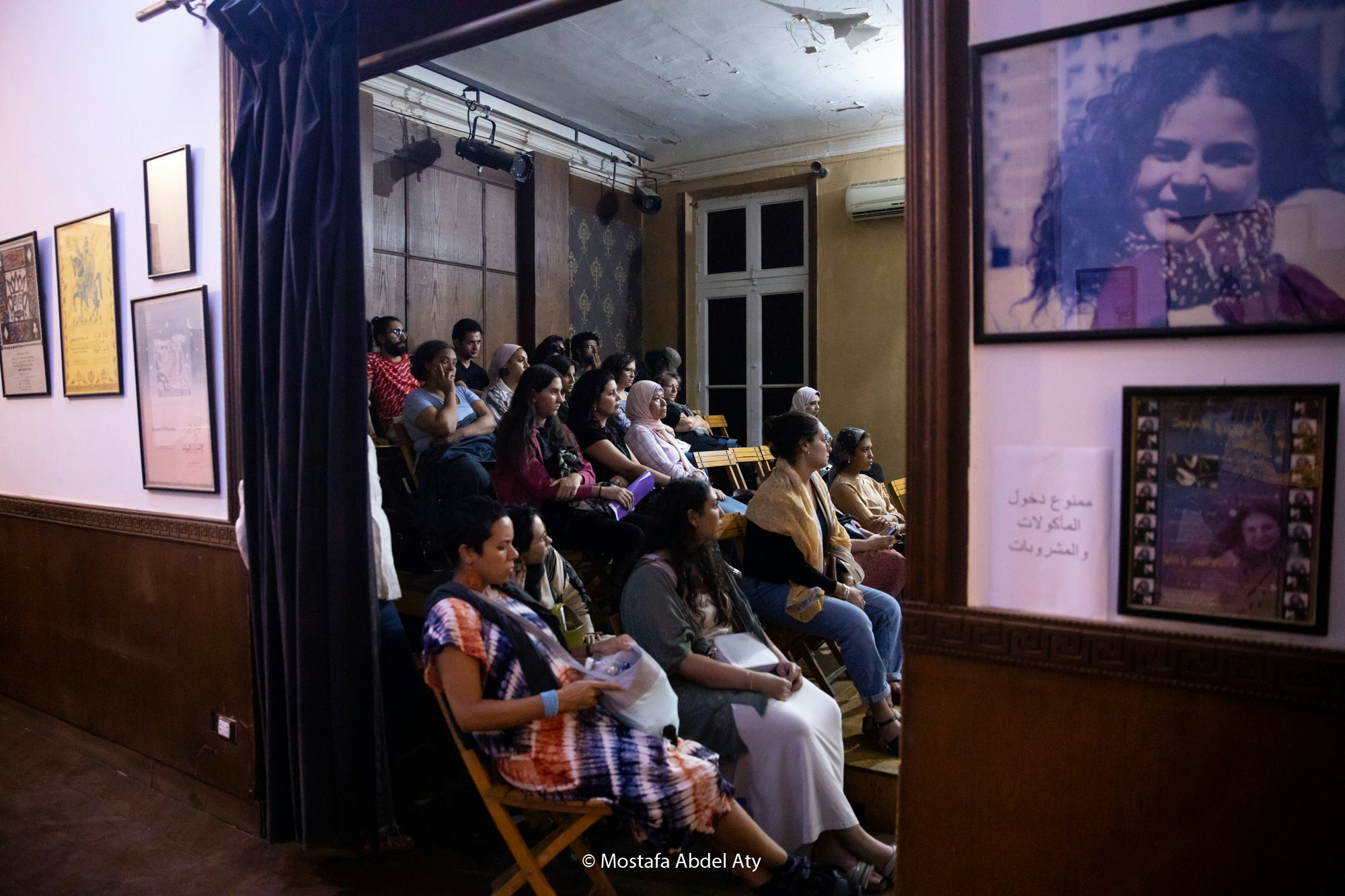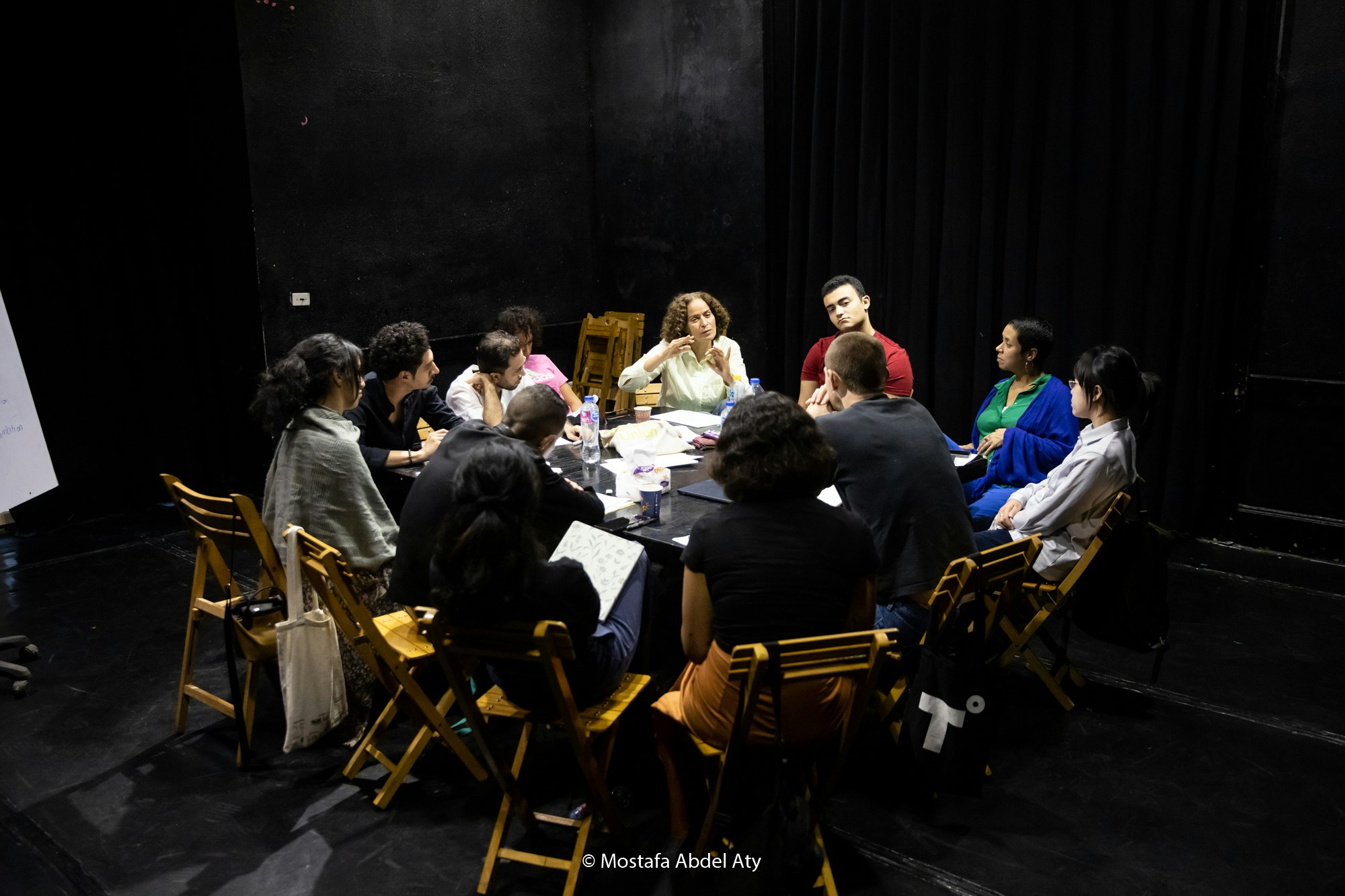October 23
Urban walk: Tour of Downtown Cairo with Qahrawya
A tour of Downtown Cairo was offered by the Qahrawya organization. It highlighted the history of the district, presented the different architectural styles in the neighbourhood and shared stories related to its inhabitants. Downtown Cairo is a hub for artists and cultural organisations, and acts as an intersection of the city’s history and social movements. The group ended with and overview of Egyptian art institutions: cinema and radio, visual arts, photography and archives.
Qahrawya offers walking tours focusing on the city’s visual and artistic side, uncovering hidden gems and diverse cultural venues. From cultural centers and art studios to photography exhibitions and film studios, Qahrawya takes people on walking tours in Downtown Cairo, El Mounira, Garden City, and Zamalek. They also organize the Gudran Art Tour, which specializes in showcasing fine arts, mainly the contemporary art scene in Downtown Cairo.
Introduction to Orient Productions & D-CAF
Then, Ahmed El Attar, performer, director and playwright, but also founder of OP, introduced the work of the organization in relation to the history of the artistic and cultural scene in Cairo and Egypt.
Ahmed El Attar never stops working on shifting the lines, always drawing inspiration from reality to change the way it is perceived. His shows draw on issues and dramaturgical knots in contemporary Arab society, and always look to oppressions, particularly family oppressions, to shed light on the usual. In addition to his artistic activities, Ahmed El Attar is very active in the Cairo cultural scene, where he founded and directs the multi-disciplinary Downtown Contemporary Arts Festival (D-CAF) and a private production company that offers various services and hosts a number of diverse projects in the fields of entertainment, arts and culture.
October 25
Seminar: Urban Informality / Omar Nagati – CLUSTER
A talk on Urban Informality was conducted by Omar Nagati. The cofounder of Cluster briefly introduced the organization's approach into informal areas and urban practices. Often dubbed in official media and public policy as “slums,” these areas illustrate creative solutions by individuals and communities in response to decades of the absence of state provision. They offer a glimpse on how Cairo, and many cities in the Global South, are developing, populating and organizing themselves. The group visited two of Cluster's representative informal zone projects, Along the Line and AlFabrika.
Omar Nagati is a practicing architect and urban planner and the co-founder of Cluster, an urban design and research platform in downtown Cairo. A graduate of Cairo University, he studied at UBC, Vancouver, and UC Berkeley with a specific focus on informal urbanism and taught at a number of local and international universities. Nagati adopts an interdisciplinary approach to question urban history and design and engages in a comparative analysis of urbanization processes in the Global South. His work at Cluster has been the recipient of a number of awards including the Cairo Design Award and the Curry Stone Design Prize, representing Egypt in a number of architecture and urban biennials in Venice, Lisbon, and Seoul.
Seminar: Decentralising the Arts
It was followed in the afternoon by a conversation around Decentralising the Arts.
Currently deputy cultural attache in charge of programming at the French Institute in Cairo, Heba El Cheikh presented her structure, Mahatat, a contemporary art social enterprise based in Cairo that aims to unleash inspiration and creativity and expand the pool of professional artists working in the outdoor art disciplines. Heba also introduced Mahatat’s toolkits Art of Transit and CulturePuncture. After the presentation, the artists took part to an outdoor activity in the area surrounding Rawabet's art spaces.
Heba El Cheikh is considered one of the most important international experts on participatory art concepts in the Arab world. Through art in the public space and with different communities, she seeks to set democratization processes in motion. Since its founding in 2011, her organization has become a model for participatory art practice on an international level.
October 26
Workshop: Movement Lab
A dance artist and researcher based in Cairo, Salma Abdelsalam proposed a workshop around phenomenological ways of inhabiting and orienting, based on two texts, Queer Phenomenology by Sarah Ahmed and The Poetics of Space by Gaston Bachelard. By navigating the space (spatially, emotionally, physically, visually, sonically), the artists allowed themselves to become lost, disoriented and reoriented.
Salma Abdelsalam is a dance artist and researcher based in Cairo. She holds an MA in Performance Studies from NYU Tisch, and is a graduate of the Cairo Contemporary Dance Center’s professional dance program. In 2016, Abdelsalam co-founded nasa4nasa, an independent dance collective based in Cairo. She teaches performance and dance theory at the American University in Cairo and the Cairo Contemporary Dance Center. Aside from her own work as a choreographer, she performed with locally and internationally acclaimed choreographers. She has been published by Ibraaz and ICI Paris and she is currently working on a book project with dancer Farida Fahmy.
October 27
Workshop: Experimental Dramaturgy
A workshop around Experimental Dramaturgy, led by British theatre-maker Nathan Ellis, was proposed. Discussion focused on form and content and how to use form as a starting point for thinking about texts. The artists read texts, discussed plays and theatricality, and reflected on several existing examples before applying the techniques to their own projects.
Nathan Ellis is a writer-director originally from the UK, currently based in Berlin. He was a member of the Royal Court Invitation Writers’ Supergroup 2018-19, led by Alice Birch and Ali Mcdowall. He is a current member of the Channel 4 Screenwriting group and was a member of BBC Writers Room Drama Room 2021–22. His plays include Super High Resolution (Soho Theatre, London; Staatstheater Kassel, Germany), work.txt (a play without actors) (Summerhalll, Edinburgh, International Tour), and No One Is Coming to Save You (Bunker Theatre, London). His work has been performed on six continents.
October 28
El Kousha Puppets: a day trip to Fayoum
The artists went on a day trip to the Tunis village in Fayoum, an oasis located 100 km southwest of Cairo, which hosts the El-Kousha puppet troupe, a group of Egyptian puppeteers and artists. Founded in 2000, the troupe is well known for its public street performances that challenge the concept of separation between artists and their audience. The cohort met Nassef Azmi, the founder of El-Kousha, saw a demonstration of his puppet show, walked around the village, and tried their hand at pottery, which the village is known for.
Nassef Azmi settled the theater group Al-Kousha in 2000. Since its foundation, Al-Kousha has presented a variety of performances in public places.
October 30
Seminar: Performative interactions of the human body
The day started with Performative interactions of the human body, a lecture by multimedia artist Salam Yousry.
A multimedia artist, Salam Yousry works and lives in Cairo. Majoring in painting, he graduated from the Faculty of Fine Arts at Helwan University in 2004. Yousry exhibited in different art spaces, such as Shelter in Alexandria, Galleria Soul in El-Gouna, and the Russian Cultural Center in Cairo. Yousry founded Al-Tamye Theatre Group in Cairo and initiated the International Choir Project, which traveled to different cities in the world. In 2012, he organized the Combo Independent Festival at the Rawabet Theatre in downtown Cairo. Since 2010, Yousry has been facilitating community-based workshops in songwriting and performance across the Middle East, Europe, and the United States.
October 31
Presentation and Meeting: El Warsha
The cohort met the theatre group El Warsha, the first independent troupe in the free theatre movement in Egypt and its director, theatre-maker Hassan El Geretly. El Warsha started re-examining the western theatre heritage by adapting a number of European plays with growing freedom. The company then embarked on a lengthy initiation into the art of storytelling, one of Egypt's most widespread ancestral traditions, and turned its attention to other traditional arts. For the past twenty years, the company has been working on a vast repertoire of songs, chants, stories and sketches drawn from all the sources of the Egyptian verb.
A graduate of theatrical, literary and audiovisual studies in the UK and France, Hassan El Geretly worked as an actor, then as a director. Following two collaborations with filmmaker Youssef Chahine, he settled in Cairo and founded the El Warsha company in 1987.
November 01
Mazaher Performance: An encounter with its founder, Ahmed El Maghrabi
The artists visited Egyptian Center for Culture and Art and met its founder, Ahmed El Maghrabi. The Egyptian Center for Culture and Art, Mazaher Performance, encourages the diversity of the Egyptian cultural scene to counter cultural uniformity, consumerism and a growing intolerance for marginality, as well as the preservation of oral and traditional Egyptian arts. It provides opportunities for marginalized Egyptian musicians to make a profit through concerts, international festivals and workshops, increasing musicians’ self-sustainability.
Ahmed El Maghrabi is the founder and director of the Egyptian Center for Culture and Arts at Makan. ECCA expands the audience for traditional music by renewing the performer-audience-venue relationship and by increasing the opportunities for financial self-sustainability for musicians. ECCA also provides a performance venue, combines different Egyptian music cultures into a new and unique sound, teaches young people how to play traditional musical instruments and styles through its instrument school, and hosts artistic workshops and exchanges for musicians.
November 04
Seminar and Site Visit: Conservation and Community
May al-Ibrashy, an architectural engineer, presented on site Athar Lina, her project around heritage conservation and rehabilitation, heritage industries, education and urban revitalization in Al-Khalifa.
May al-Ibrashy is a licensed architectural engineer with almost 30 years of field experience in conservation and heritage management in historic Cairo. She is the founder and chair of Megawra-Built Environment Collective, a twin institution consisting of an Egyptian NGO and a consultancy working on issues of the built environment. She coordinates Athar Lina, an initiative run by Megawra-BEC in partnership with the Egyptian Ministry of Antiquities and Cairo Governorate that conserves the heritage of al-Khalifa in historic Cairo and conceives of it as a driver for community development. She is also an adjunct lecturer of architecture at the American University in Cairo and a professor of practice at the School of Oriental and African Studies, University of London.
